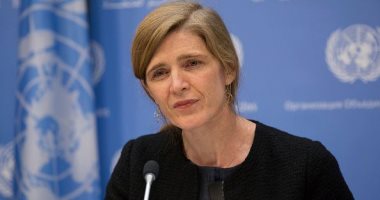USAID Announces $315 million Humanitarian Aid to Sudan
The United States Agency for International Development (USAID) has announced an additional $315 million in humanitarian aid for Sudan as the country’s crisis worsens.

USAID Director Samantha Power emphasized that the situation in Sudan is becoming increasingly dire following the closure of the Adré crossing, which threatens the nation with the world’s worst famine due to blocked humanitarian aid.
Power’s remarks were made during a media briefing with the U.S. Ambassador to the United Nations, Linda Thomas-Greenfield. Power noted that Sudan is facing a humanitarian crisis that could surpass the famine which claimed a quarter of a million Somali lives in 2011. She warned that the most concerning scenario is that Sudan could experience the worst famine since the one that struck Ethiopia in the early 1980s.
Power highlighted that around 12 million people within Sudan and in neighboring countries are seeking safety, with displaced individuals facing severe shortages in medical care due to the cessation of operations at 80% of hospitals in conflict areas. She added that humanitarian workers are striving to provide medications and transport patients to the few remaining field health centers, or to administer urgent medical treatments.
Power also announced that USAID and the U.S. Department of State will provide more than $315 million in additional humanitarian aid to support the people of Sudan, and she urged all international partners to stand with Sudan.
Meanwhile, U.N. Ambassador Linda Thomas-Greenfield stated that ethnically motivated massacres in West Darfur at the end of last year, coupled with deteriorating food security and the Sudanese Armed Forces’ closure of the critical Adré border crossing, have forced thousands to flee their homes. She pointed out that nearly 25 million Sudanese are in desperate need of humanitarian assistance and protection, with up to 15% of the population in the hardest-hit areas of Darfur and Kordofan at risk of dying by the end of September 2024.
Thomas-Greenfield underscored that this is the largest humanitarian crisis on the planet and warned that it could worsen further. As the rainy season approaches, the Al-Tina border crossing, already insufficient and hampered by obstacles, will soon become impassable. She noted that El Fasher, one of the last safe havens for civilians, was subjected to aerial and indiscriminate shelling last month.
She referenced last week’s United Nations Security Council meeting, which resulted in a resolution demanding an end to the siege and attacks in El Fasher. The resolution calls for an immediate local ceasefire in and around the city, protection of civilians, and urges the Secretary-General to recommend measures to safeguard the population. It also demands that humanitarian aid be allowed to flow freely into Darfur and across Sudan in accordance with international law, including the reopening of the Adré border crossing to ensure the delivery of essential food and medical supplies to Sudan.
In a related context, international activist Hassan Ghazaly, founder of the Global Solidarity Network, emphasized the necessity for global media to highlight the Sudanese crisis, noting that it is currently the largest humanitarian crisis in Africa. He pointed out the importance of international relief and development agencies playing their role in supporting Sudan’s neighboring countries, given the economic pressure caused by the influx of Sudanese refugees, particularly in the Arab Republic of Egypt, which has been unwavering in extending a helping hand to the Sudanese people.















